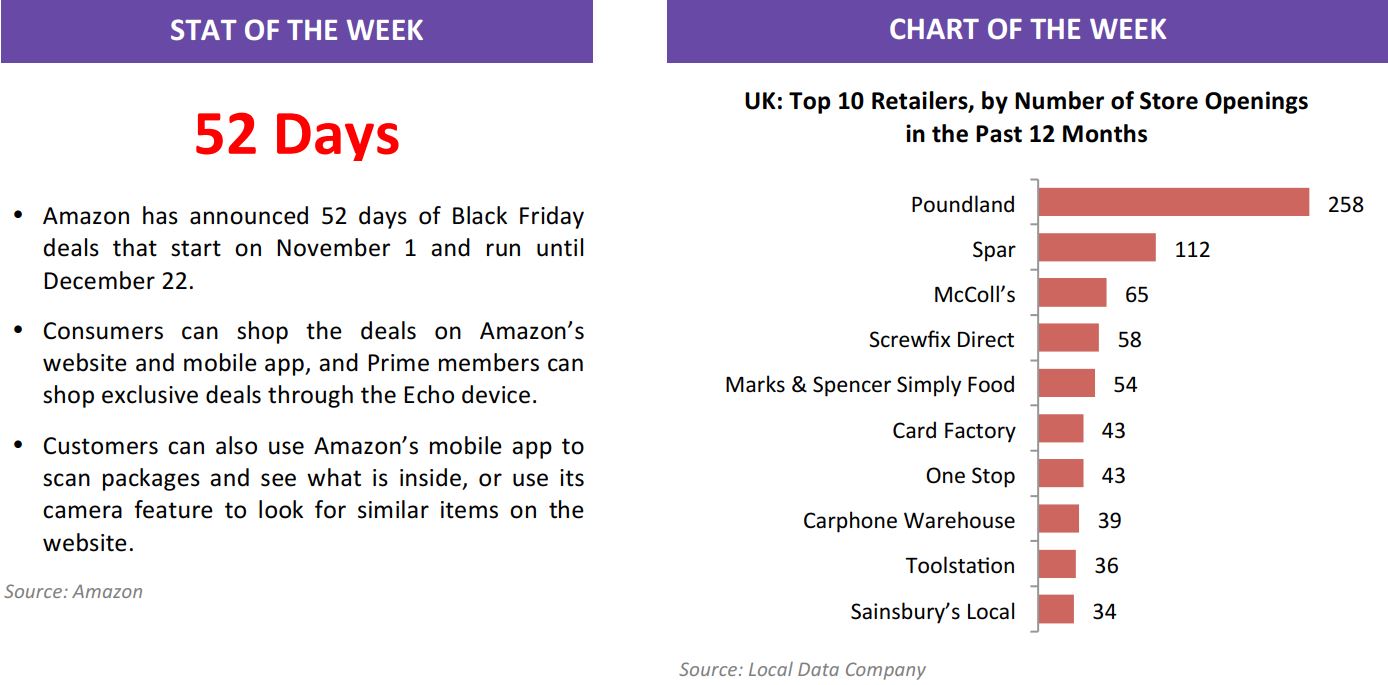
FROM THE DESK OF DEBORAH WEINSWIG
Amazon Set to Become a Majority Marketplace
When Amazon announced its third-quarter 2016 results on October 27, most media coverage focused on its substantial miss on bottom-line expectations. But we were also looking closely at another metric: the share of unit sales generated by third-party sellers. And we saw what we were expecting. In the third quarter, Amazon announced that fully half of its unit sales were made by third-party sellers on its marketplace, up one percentage point from the previous quarter.
Given this share’s steady growth trend, we expect Amazon to become a majority marketplace, by share of unit sales, in the fourth quarter. In the kind of definitional detail that only analysts really worry about, Amazon would thereafter cease to be classified as a retailer.
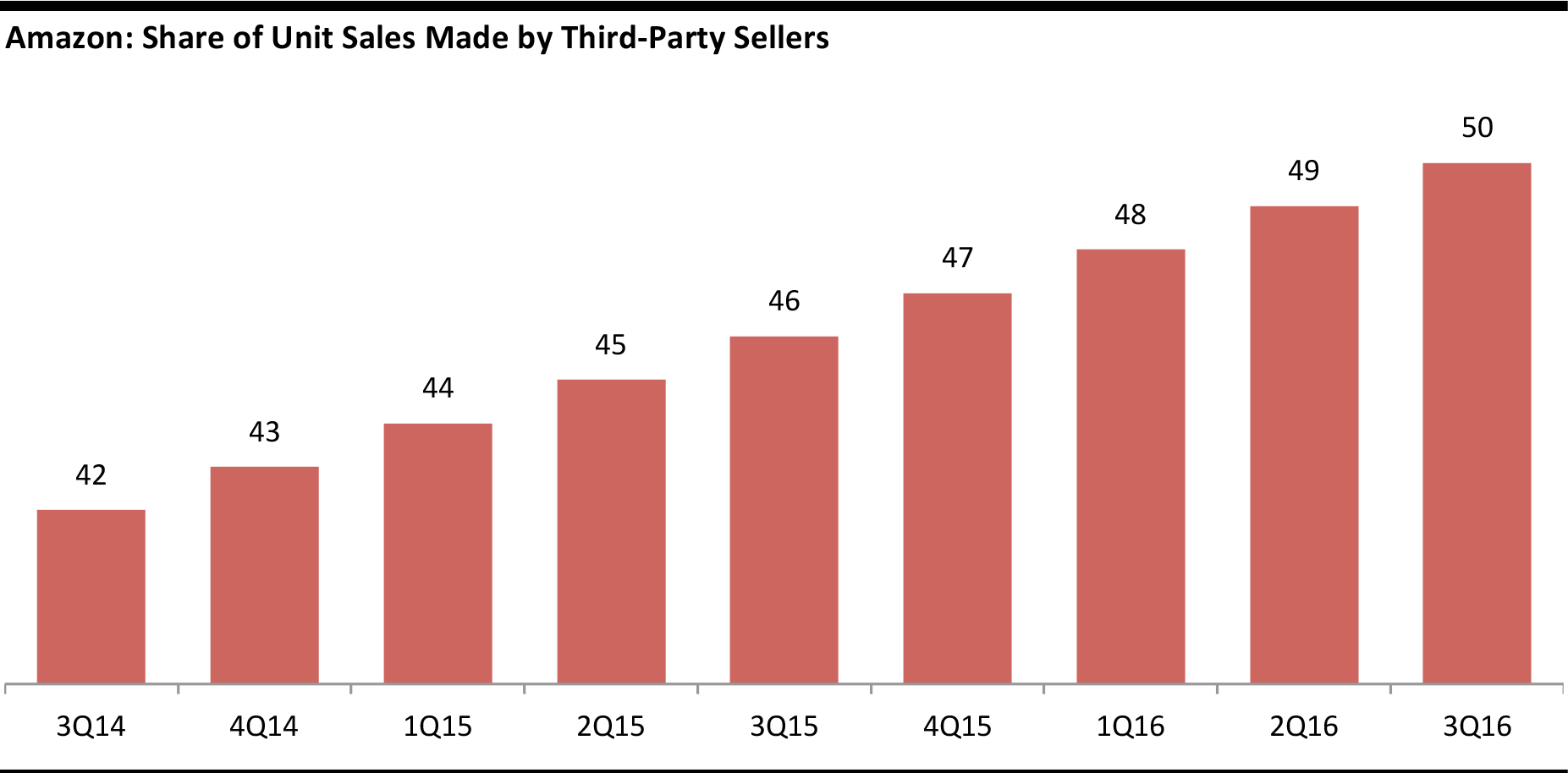
Source: Company reports
Amazon Marketplace Likely to Overtake eBay
Amazon Marketplace’s strong growth is putting it on course to overtake eBay in terms of annual global gross merchandise volume (GMV) in 2016; GMV is the value of all goods sold, no matter who sells them. We estimate that Amazon Marketplace generated GMV of around $69 billion in 2015 versus eBay’s $78 billion—but Amazon Marketplace is growing much faster and, so, should leapfrog eBay this year. (In terms of total GMV including direct retailing, Amazon is already far ahead of eBay.)
More Retailers Are Competing in the Marketplace Wars
Other retailers are following Amazon’s lead by pushing into marketplace formats. In the US, Walmart is ramping up its marketplace by bringing new sellers on board. It has also acquired Jet.com and made investments in JD.com. In Europe, apparel pure play Zalando has launched a marketplace model for big fashion brands.
Why are retailers piling in? We see four major benefits to the marketplace model over direct retailing. First, the model is highly profitable, because the sites can charge double-digit commissions for simply acting as a portal. Second, marketplaces are protected from the risks associated with owning stock. Third, shoppers are less likely to walk away unsatisfied, as the long tail of product demand can be satisfied with little effort from the retailer. Fourth, the model is a flexible, asset-light way of entering new markets.
- We analyze the marketplace segment in more detail in our forthcoming report, Online Marketplaces: Disrupting Retail. Keep an eye out for it on FungGlobalRetailTech.com.
�
US RETAIL EARNINGS

Source: Company reports
US RETAIL & TECH HEADLINES
 Black Friday’s Inside Secret: Same Deals Every Year
(November 1) The Wall Street Journal
Black Friday’s Inside Secret: Same Deals Every Year
(November 1) The Wall Street Journal
- Black Friday deals have not varied much in the past several years. Ads and circulars for retailers such as Target, Walmart and Best Buy look almost identical this year to how they looked in past years, featuring nearly the same discounts on the same products.
- Retailers claim they are catering to consumers’ preferences, but executives say that part of the sameness has to do with minimizing risks for a key shopping holiday. That play-it-safe strategy could, however, be turning off holiday shoppers, who will continue to turn online if physical stores offer nothing new.
 Consumers Prefer Holiday Shopping on Marketplaces
(November 1) Internet Retailer
Consumers Prefer Holiday Shopping on Marketplaces
(November 1) Internet Retailer
- Holiday shoppers prefer to buy gifts from online marketplaces rather than from individual retailers’ websites, according to a survey by search marketing firm NetElixir. Of 1,000 consumers surveyed, 42% said they were most likely to buy a holiday gift from an online marketplace, such as Amazon or eBay, while 43% said they would still be purchasing gifts in stores. Only 15% said they were likely to buy from a retailer’s website.
- NetElixir says Amazon will have a big holiday season as a result. The firm estimates that Amazon will grow its share of online holiday sales to 28% this year, up from 26% last year. That would translate into $21.5 billion in sales, compared with $18.0 billion last year.
 Instagram Wants to Ease Its Users into Shopping
(November 1) Bloomberg
Instagram Wants to Ease Its Users into Shopping
(November 1) Bloomberg
- This week, Instagram announced it will begin introducing shopping via its platform by letting brands experiment with tagging their products in photos. The challenge the company faces is avoiding turning the platform into just a snazzy catalog.
- After this first test, Instagram plans to use the data gathered to figure out what to do next. Ideas for adjustments include adding a way to comparison shop, adding a way to search for products elsewhere on the app and adding a Pinterest-like feature that allows users to save posts that inspire them.
 Rochambeau’s Smart Jacket Looks to Turn Luxury Customers on to Tech
(November 1) Glossy
Rochambeau’s Smart Jacket Looks to Turn Luxury Customers on to Tech
(November 1) Glossy
- New York–based luxury brand Rochambeau has created a designer, connected jacket that takes exclusivity to a whole new level. Only 15 Bright Bmbr jackets will be produced for a limited-edition run.
- The garment features a smart chip that gives wearers rewards such as VIP entry to certain clubs and exclusive menu tastings at partner restaurants. Buyers who wear their jacket to The New Stand—an experiential retail store where the first 15 jackets will be sold—will unlock personalized gifts such as music videos or signed pieces of art. The jacket will also serve as an invitation to Rochambeau’s 2017 runway show.

*FY16 results were reported for 53 weeks, while FY15 results were for 52 weeks.
Source: Company reports
EUROPEAN RETAIL HEADLINES
 Pandora’s 3Q16 Sales Grow by 18% Year over Year
(November 1) Company press release
Pandora’s 3Q16 Sales Grow by 18% Year over Year
(November 1) Company press release
- Danish jewelry retailer Pandora reported third-quarter 2016 sales of DKK 4,612 million (US$683.5 million), a year-over-year increase of 18%. Year over year, sales grew by 6% in the Americas region, by 18% in the EMEA region and by 46% in the Asia-Pacific region.
- Sales at Pandora’s concept stores grew by 26% year over year and contributed 62% of revenue. Net profit was DKK 1,405 million (US$208.3 million), up nearly 40% year over year. The company reiterated its financial guidance and confirmed that it expects full-year revenues to be in excess of DKK 20 billion (US$2.9 billion).
 Lidl Spain to Begin Selling Online
(October 31) European Supermarket Magazine
Lidl Spain to Begin Selling Online
(October 31) European Supermarket Magazine
- German grocer Lidl is set to sell online in Spain, following similar moves in Belgium, Germany and the Netherlands. Lidl Spain’s General Director, Michael Aranda, confirmed that the company has staff working on the online launch, but he did not confirm the date of the rollout, according to Spanish news site Efeagro.com.
- Aranda stated that Lidl will not be able to neglect the digitalization trend, but that it will always aim to “guarantee quality at the lowest price.”
 Card Readers May Be Necessary for Online Payments over €10 (US$12)
(October 31) Retaildetail.eu
Card Readers May Be Necessary for Online Payments over €10 (US$12)
(October 31) Retaildetail.eu
- In order to fight fraud, the European Banking Authority intends to make it mandatory for everyone to use a card reader while making online payments in excess of €10 (US$12). However, banks and online merchants feel this move may be unnecessary.
- Emota, a European interest group for web shops, believes that customers who frequently shop with an online retailer should be able to make payments more easily, and that fraudulent purchases usually occur in small amounts, so this rule may not serve its purpose.
 HMV Outpaces Amazon in Physical Entertainment Market
(October 28) Kantar Worldpanel
HMV Outpaces Amazon in Physical Entertainment Market
(October 28) Kantar Worldpanel
- British retailer HMV has reestablished itself as the UK’s largest music retailer by overtaking Amazon in physical entertainment sales in the 12 weeks ended September 25, 2016, according to Kantar Worldpanel. During the period, HMV attracted 41,000 new shoppers and increased its share of the physical entertainment market by 3.1 percentage points.
- Kantar noted that Amazon lost about 14% of its customers in the physical music market and that the company expects the decline to accelerate in the coming months as it focuses on promoting its Amazon Music Unlimited streaming service that launches in early 2017.
 Marks & Spencer Reportedly to Close Paris Store
(October 26) Bloomberg.com
Marks & Spencer Reportedly to Close Paris Store
(October 26) Bloomberg.com
- British retailer Marks & Spencer reportedly plans to close its flagship Champs-Élysées store in Paris as part of CEO Steve Rowe’s strategy to cut costs and spur a recovery in performance. The company declined to comment on the matter, but is expected to make an announcement during a strategy review conference with investors on November 8.
- Former CEO Marc Bolland opened the 15,000-square-foot store in Paris as one of his first moves when he took the helm in 2010. Since Rowe assumed office earlier this year, the company has undertaken several measures to curb costs, including eliminating about 525 head office jobs and cutting premium pay for nonregular hours worked by store staff.
ASIA TECH HEADLINES
 Alibaba Boosts Entertainment Business with ¥10 Billion Fund
(October 31) Reuters
Alibaba Boosts Entertainment Business with ¥10 Billion Fund
(October 31) Reuters
- Alibaba has announced a plan to form a new digital media group by reorganizing its entertainment assets. A ¥10 billion (US$1.48 billion) fund will be set aside for new projects.
- The move marks a total consolidation of Alibaba’s media businesses, including Youku Tudou, UCWeb and Alibaba Pictures, as well as the company’s sports, games, literature, music and digital entertainment divisions.
 Japan’s Mana.bo Raises US$2.4 Million as It Shakes Up Japan’s Cram Schools
(November 1) TechinAsia
Japan’s Mana.bo Raises US$2.4 Million as It Shakes Up Japan’s Cram Schools
(November 1) TechinAsia
- Japanese online tutoring startup Mana.bo has raised US$2.4 million in funds as it plans to expand its reach beyond online classes. With services remaining online, the company will be collaborating closely with cram schools to provide more comprehensive support.
- The startup was established to shake up Japan’s US$10 billion cram school industry. It helps high school students prepare for Japan’s college entrance exams by offering real-time help to users with problems such as math equations.
 China’s Mobike to Expand into Singapore
(October 31) e27.co
China’s Mobike to Expand into Singapore
(October 31) e27.co
- Chinese bike-sharing startup Mobike has set its eyes on Singapore’s cycling community by announcing its plan to trial its bike-sharing service in the country. The trial marks the startup’s first foray into an overseas market.
- Mobike, founded in 2015, allows users to locate bikes through its app using a built-in GPS system. Users can then book a bike 15 minutes before picking it up and unlock it using a QR code.
 Honda to Open Artificial Intelligence Center in Tokyo
(October 31) Tech Wire Asia
Honda to Open Artificial Intelligence Center in Tokyo
(October 31) Tech Wire Asia
- Japanese carmaker Honda Motor has chosen to headquarter its artificial intelligence (AI) research hub in Tokyo. The move will consolidate all the company’s current AI teams from Silicon Valley, Europe and Tokyo.
- Honda says locating the center on its home ground will enable closer interactions between scientists and researchers than locating it in Silicon Valley would.
LATAM RETAIL HEADLINES
 Grupo Iguatemi Eyes Growth, Acquisitions
(October 28) WWD.com
Grupo Iguatemi Eyes Growth, Acquisitions
(October 28) WWD.com
- Brazilian luxury mall operator Grupo Iguatemi expects that its revenues will begin to outpace those of its rivals beginning this year. The company is analyzing acquisitions within the struggling retail sector in Brazil.
- Despite the downturn of the Brazilian economy, Grupo Iguatemi has been resilient, as Brazilians have turned to buying more in Brazil and brands have reduced their margins in order to stay competitive.
 Walmart Transforms Hypermarket Concept in Brazil
(November 1) European Supermarket Magazine
Walmart Transforms Hypermarket Concept in Brazil
(November 1) European Supermarket Magazine
- Walmart is relaunching its hypermarket concept in Brazil, with the opening of Walmart Tamboré in São Paulo and the rebranding of Big Novo Hamburgo in Rio Grande do Sul and Big Santa Felicidade in Parana as Walmart outlets.
- Walmart is investing R$1 billion (US$309 million) over the next three years in the rebranding of the Big supermarkets (which it acquired in 2005) and Hiper Bompreço (which it acquired in 2004), and in the relaunch of the hypermarket concept. The relaunch will include changes to store layouts, assortments, services offered and equipment in sales areas.
 Constellation Brands to Buy Obregon Brewery from Grupo Modelo
(October 31) Reuters
Constellation Brands to Buy Obregon Brewery from Grupo Modelo
(October 31) Reuters
- Constellation Brands, owner of Corona and Modelo beer, said it would buy a brewery in Mexico from Grupo Modelo, a subsidiary of Anheuser-Busch InBev, for US$600 million. The brewery is expected to service Constellation’s biggest markets on the US West Coast.
- The Obregon brewery is expected to produce 4 million hectoliters after the deal goes through. Constellation is building another brewery in the region, which will produce an additional 5 million hectoliters by December 2019.
 The World’s Hunger for Avocados Is Having a Devastating Effect on Mexico
(November 1) Business Insider
The World’s Hunger for Avocados Is Having a Devastating Effect on Mexico
(November 1) Business Insider
- Deforestation caused by the expansion of avocado orchards is proving to be much greater than previously thought. An environmental protection agency in Mexico said almost 50,000 acres of forestland are converted to agricultural uses each year in the western state of Michoacán, which is the world’s top producer of avocados.
- Between 30% and 40% of annual forest loss in Michoacán is due to avocados, and a mature avocado orchard uses almost twice as much water as a dense forest does, causing issues within the surrounding ecosystems.
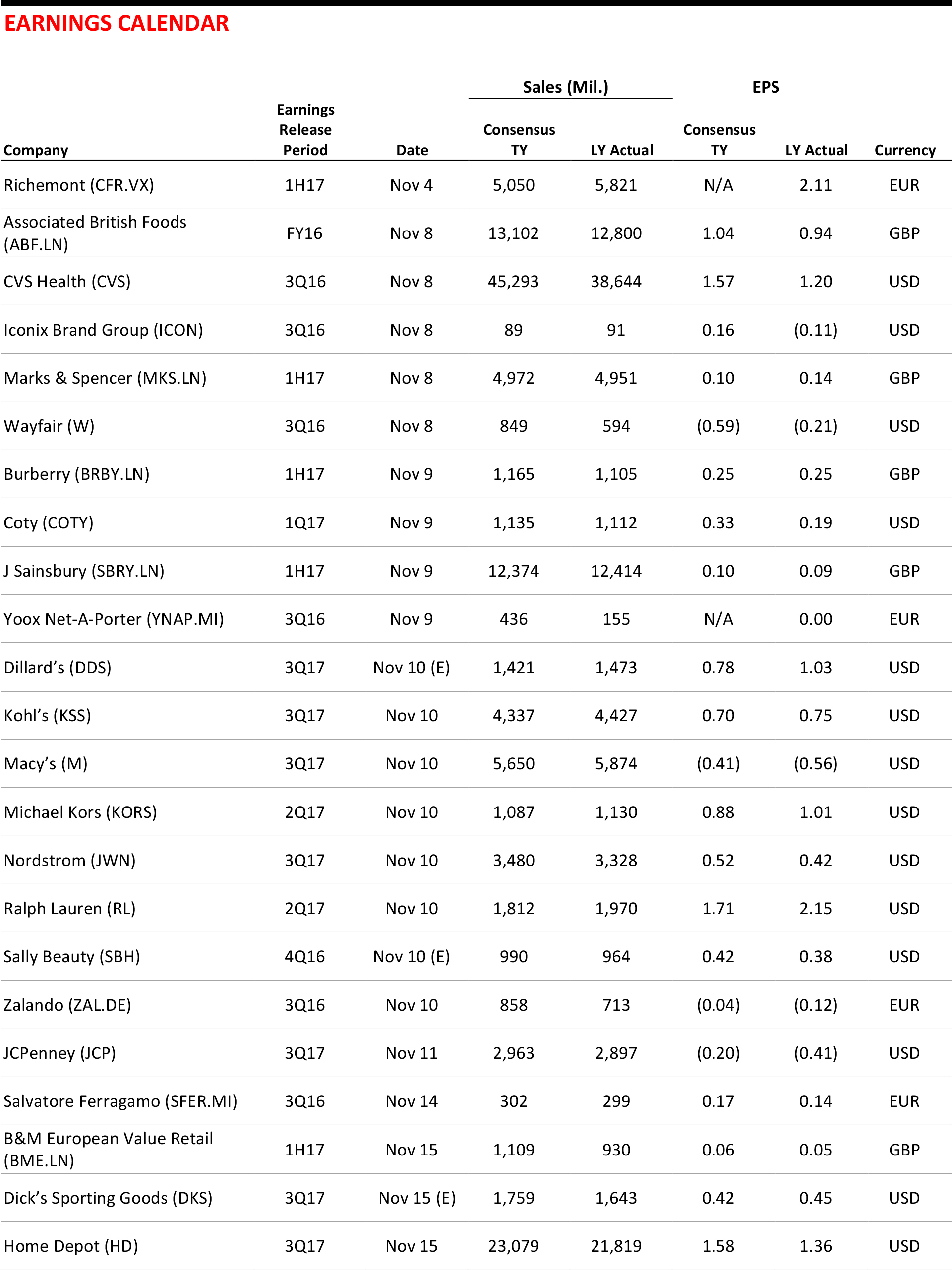
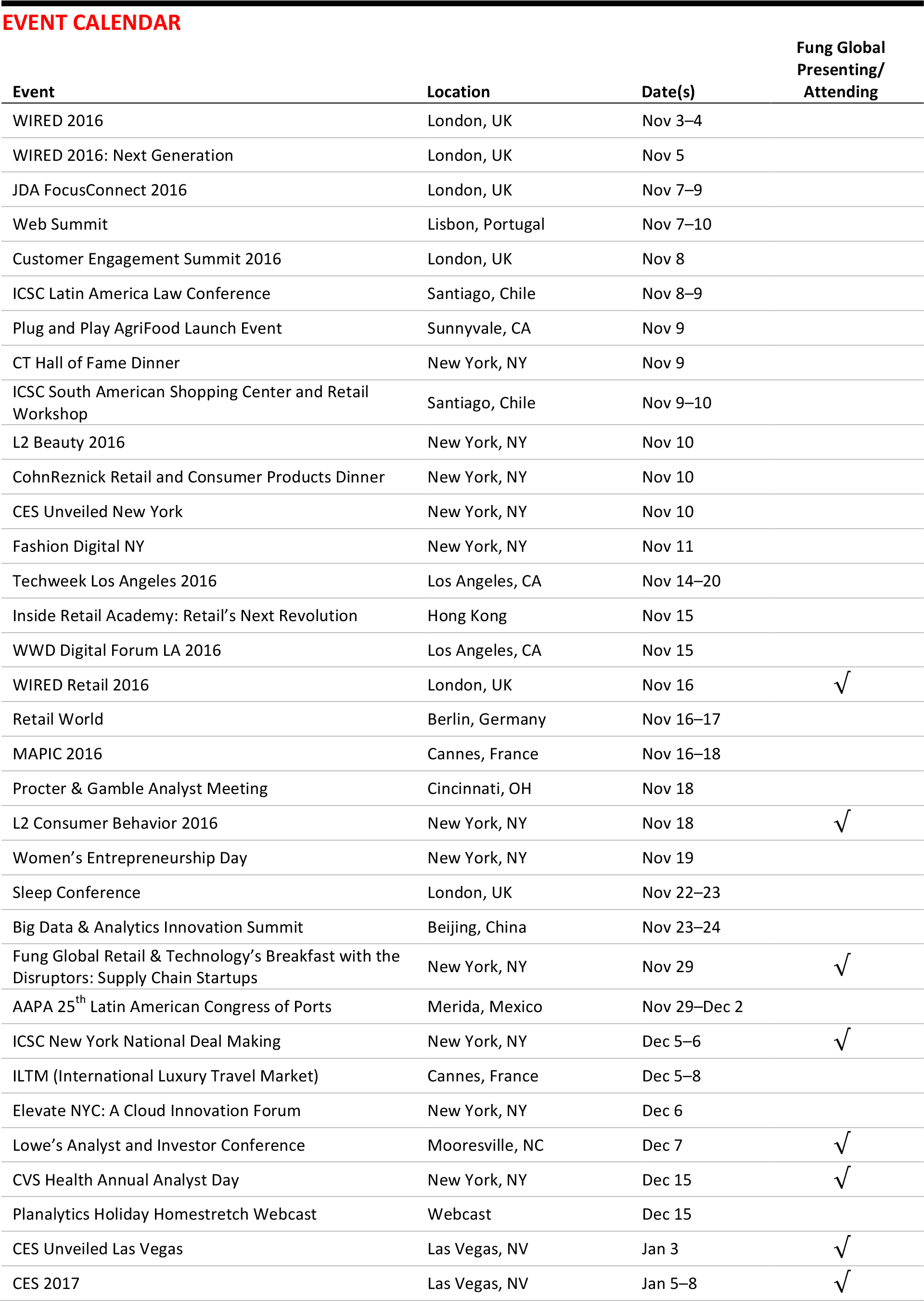
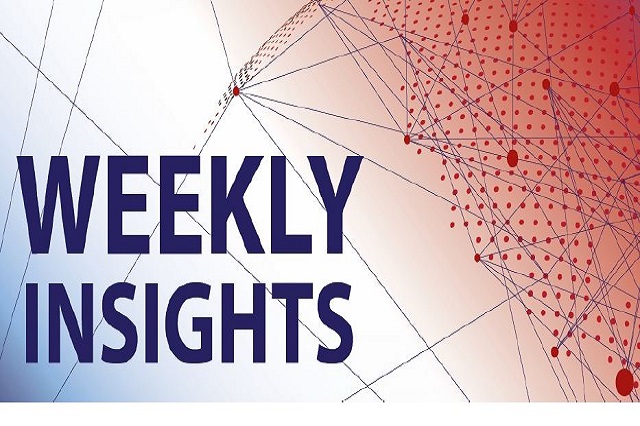




 Instagram Wants to Ease Its Users into Shopping
(November 1) Bloomberg
Instagram Wants to Ease Its Users into Shopping
(November 1) Bloomberg

 Constellation Brands to Buy Obregon Brewery from Grupo Modelo
(October 31) Reuters
Constellation Brands to Buy Obregon Brewery from Grupo Modelo
(October 31) Reuters

